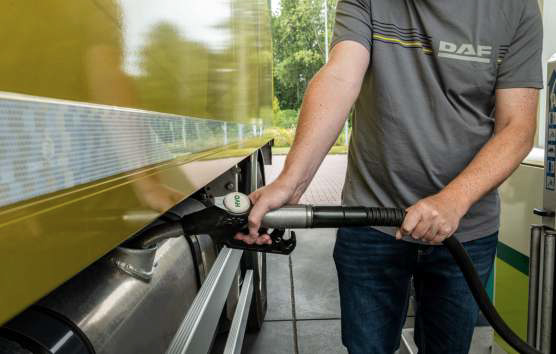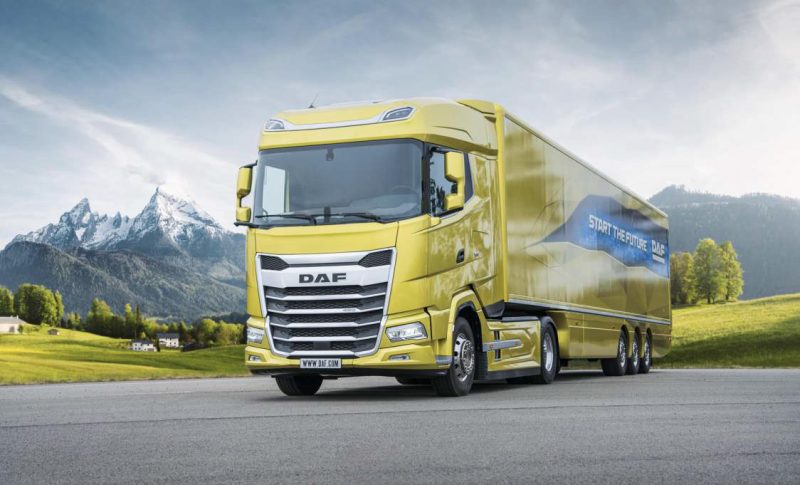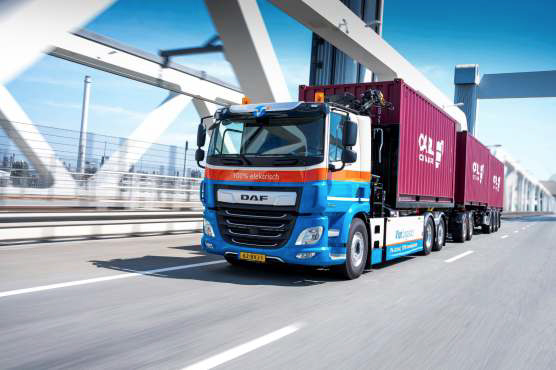DAF introduces Hydrotreated Vegetable Oil-powered trucks
New generation DAF trucks ready for 100% HVO, fuel made from waste products and fats from the food industry.
Much has been said about electric powered vehicles and the potential use of hydrogen technology in the transport sector. But apart from these environment-friendly alternative fuel sources, vegetable oil could also be an option.
DAF Trucks announced in addition to the introduction of a complete series of fully electric trucks and the development of hydrogen technology, it’s getting its combustion engines ready for new types of fuel to further reduce CO₂ emissions, the HVO or Hydrotreated Vegetable Oil.
HVO is a biofuel of the latest generation that enables a reduction in CO₂ emissions of up to 90% and can perfectly be used in all New Generation DAF trucks.
Made from waste products and fats from the food industry, HVO is currently the most sustainable fuel on the market for diesel trucks and offers a reduction of up to 90% in CO₂ emissions (‘Well-to-wheel’) compared with regular diesel, DAF noted, adding, unlike previous generations of biofuels, HVO has no impact on food production.
In addition to the environmental benefits, another important advantage is that HVO can be used in DAF trucks without any adjustments to the vehicles, while maintaining the trucks’ excellent performance, as well as the service intervals of up to 200,000 kilometres for long-distance transport.
Suited for the full DAF product range
All of the newest generation of DAF trucks are ready to use 100% HVO, including the popular LF series for distribution transport, the versatile XD (‘International Truck of the Year 2023’) for distribution and specific applications and the ‘top-of-the-range’ XF, XG and XG+ (‘International Trucks of the Year 2022’) for heavy and long-distance transport.
“DAF is at the forefront of our society’s ambition to reduce CO₂ emissions,” according to Patrick Dean, chief engineer at DAF Trucks and member of the Board of Management.
“In 2018 we were the first to launch a fully electric truck and last year we presented a completely new generation of electric trucks with ‘zero-emission’ ranges of up to 500 kilometres. We are also getting ready for the new generations of fuels. HVO is enabling us to make a giant leap in the reduction of CO₂ emissions, already today, with the current trucks on the market and more importantly ‘well-to-wheel’. When it comes to CO₂ certification of trucks, it would be a huge step forward if European legislation would value the contribution of clean fuels to reduce CO₂ emissions, as we cannot afford to leave opportunities unused to achieve sustainable road transport. This should expand focus on the total chain – from energy source up to what’s coming out of the exhaust – instead of focusing on ‘tank-to-wheel’ only,” he added. Source: www.daf.com
New DAF Electric Truck Assembly plant officially opened
DAF’s completely new assembly plant for battery electric trucks covering an area of 5,000 m2 was officially opened in April.
The new facility has been commissioned at DAF’s main production site in Eindhoven, the Netherlands and will be instrumental in the further development of the company’s leading position in providing sustainable transport solutions.
The new DAF Electric Truck Assembly plant includes two sub-assembly lines for the preparation of the battery packs as well as the Electric Drive Module, consisting of the front battery pack, high voltage junction box and electrified auxiliaries. These key components as well as the e-motor with integrated gearbox are installed onto the vehicle on the main assembly line which is almost 150 metres long.
Newest generation battery-electric trucks
DAF has built its DAF Electric Truck Assembly plant for the production of its latest generation of battery electric trucks. The New DAF XD and XF Electric are available in a range of configurations.
These are powered by PACCAR e-Motors and equipped with battery packs of 2 up to 5 strings (210 to 525 kWh). The modular approach allows the trucks to be tailored precisely to customer requirements and needs. Full electric ranges of up to 500 kilometres are possible making 1,000 ‘zero emission’ kilometres achievable with careful planning of routes and recharging. With fast charging of up to 350 kW, battery packs can be charged to 80% of their capacity in only 45 minutes.
Production of quality validation trucks is about to start with series production of customer vehicles planned from the summer. DAF expects production to increase to thousands of vehicles per annum in the near future, in line with the increasing demand for fully electric trucks.

Minister: ‘DAF leading the way’
“DAF has been a leading player in the manufacture of trucks for many years and is currently playing a prominent and innovative role in the development of electric trucks. The transition to cleaner products and production methods is important. Not only for the environment but also to ensure that the Netherlands retains its competitive edge. This new factory for battery electric trucks is a shining example of that ambition,” said Micky Adriaansens, Dutch Minister of Economic Affairs and Climate Policy.
Harald Seidel, DAF Trucks’ President, said the company’s new assembly plant “represents another important milestone on the road to an even cleaner future.”
“To support our customers in the transition to zero emission road transport, we go further than delivering class-leading full electric vehicles. Our comprehensive package includes a broad range of charging solutions, advice on planning of routes and charging, and the provision of dedicated training for drivers to get the best out of the vehicles,” he said.


Micky Adriaansens, Dutch Minister of Economic Affairs and Climate Policy, left, leads the opening ceremony of DAF’s new assembly plant for battery electric trucks.



